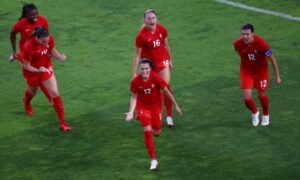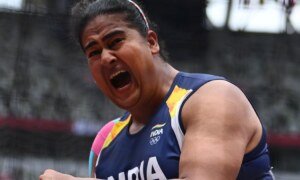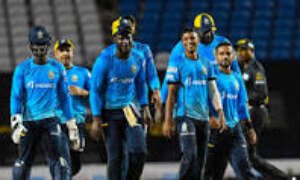From the expansion Ottawa Senators to the juggernaut Tampa Bay Lightning, the Dallas Stars coach has seen it all. Now he’s hoping to win the Stanley Cup as a senior citizen.
Watching Rick Bowness and Jim Nill taking questions on the eve of the Stanley Cup final, it’s hard to believe that a little less than three decades ago, both of them were part of the brain trust of one of the biggest laughingstocks in NHL history. Of course, $50 million back in the day didn’t buy you quite as strong an expansion team as $500 million did for the Vegas Golden Knights almost 30 years later. Bowness was the first head coach of the Ottawa Senators and Nill was an original scout. And there was a pain.
Twenty-eight years later, the two coaches meeting in the 2020 Stanley Cup final share some common history, but couldn’t have arrived at their destinations in more diverse ways. Jon Cooper of the Tampa Bay Lightning took a direct route, relatively speaking, working his way up seamlessly with lots of championships along the way. Bowness, on the other hand, had eight different stops as a player, then spent four decades coaching or assistant coaching with 11 different teams. One of those teams was the Senators, where Bowness amassed a head coaching record of 39-178-18. Who the hell recovers from a .166 points percentage in just over three seasons? “He was so good with us because we were horsesh–,” said former Senator Dave McIlwain. “I was minus-40 my first year. You’d get out of the game dash-3 (minus-3) and you’re happy with yourself.”
But people who know him will tell you that there is almost no difference between the Rick Bowness who is coaching the Dallas Stars to the Stanley Cup final and the one who endured losing streaks of 14, 11, 11, nine, and eight games in 1992-93 with the Senators. Same even keel, same calm demeanor. Treats players with the same respect and never gets too rattled. “You wake up in the morning, you go to work and you give it your best,” Bowness said. “Yeah, we had tough times. We weren’t a very good team and I don’t think I was a very good coach at that point, but we did our best every day. One thing we stressed, ‘We know we’re losing, we know we’re not very good, but we’re going to push these guys in a very positive way and try to get everything we can out of them. You learn from those experiences and it makes you stronger. It makes you a better person, it makes you a better coach because those are tough times.”
From the expansion Ottawa Senators to the juggernaut Tampa Bay Lightning, the Dallas Stars coach has seen it all. Now he’s hoping to win the Stanley Cup as a senior citizen.
Watching Rick Bowness and Jim Nill taking questions on the eve of the Stanley Cup final, it’s hard to believe that a little less than three decades ago, both of them were part of the brain trust of one of the biggest laughingstocks in NHL history. Of course, $50 million back in the day didn’t buy you quite as strong an expansion team as $500 million did for the Vegas Golden Knights almost 30 years later. Bowness was the first head coach of the Ottawa Senators and Nill was an original scout. And there was a pain.
Twenty-eight years later, the two coaches meeting in the 2020 Stanley Cup final share some common history, but couldn’t have arrived at their destinations in more diverse ways. Jon Cooper of the Tampa Bay Lightning took a direct route, relatively speaking, working his way up seamlessly with lots of championships along the way. Bowness, on the other hand, had eight different stops as a player, then spent four decades coaching or assistant coaching with 11 different teams. One of those teams was the Senators, where Bowness amassed a head coaching record of 39-178-18. Who the hell recovers from a .166 points percentage in just over three seasons? “He was so good with us because we were horses–,” said former Senator Dave McIlwain. “I was minus-40 my first year. You’d get out of the game dash-3 (minus-3) and you’re happy with yourself.”
But people who know him will tell you that there is almost no difference between the Rick Bowness who is coaching the Dallas Stars to the Stanley Cup final and the one who endured losing streaks of 14, 11, 11, nine, and eight games in 1992-93 with the Senators. Same even keel, same calm demeanor. Treats players with the same respect and never gets too rattled. “You wake up in the morning, you go to work and you give it your best,” Bowness said. “Yeah, we had tough times. We weren’t a very good team and I don’t think I was a very good coach at that point, but we did our best every day. One thing we stressed, ‘We know we’re losing, we know we’re not very good, but we’re going to push these guys in a very positive way and try to get everything we can out of them. You learn from those experiences and it makes you stronger. It makes you a better person, it makes you a better coach because those are tough times.”
That first year, the Senators went 10-70-4. In the second season, they won just 14 games and went through 46 players. There were nights when the Senators would have been in tough against a good American League team. The dressing room door might as well have been a turnstile with all the players coming and going off the waiver wire and up from the minors. “When you’re going into games and you’re looking at their roster,” Bowness said, “and you say, ‘Gosh, I hope they show up with their ‘B’ or ‘C’ game and we’ll have a great chance. That’s the reality of what we were dealing with. I didn’t want to be negative. They were working hard and giving us everything they had. We weren’t good enough, it was as simple as that.”
Experiences like those can crush a man, but they can also bring out the best in people. It was the latter in the case of Bowness. With the exception of parts of two seasons with the New York Islanders and the tail end of a season with the Phoenix Coyotes, Bowness spent the rest of his career as an assistant or associate coach after the Ottawa years. He fully expected he would continue to do that with the Stars, who turned to Bowness when they were forced to part ways with Jim Montgomery because of off-ice issues. As of January, Bowness could have started collecting an old-age pension. Now he’s on the verge of not only the Stanley Cup final, but turning his interim stint into a permanent gig as the head man behind the Dallas bench. “You know what? He was no different then than he is now,” Nill said. “He knows what his job was and he dug in. It was hard on him, but he didn’t change. He persevered and stayed positive. That’s what makes him the great human being that he is. He treats everyone the same, no matter the circumstances.”
One of those stops Bowness made was in Tampa, where he joined forces with Cooper and had some great success. All told, in five years with the Lightning, they went to the Stanley Cup final once and the Eastern Conference final two additional times. With Cooper new to the league, Bowness was the perfect person to have around. “Going through the hiring process, it was about bringing somebody in that knew the league and honestly, could work as a mentor for myself,” Cooper said. “I searched everywhere and was very fortunate to run into Rick Bowness. I learned so much from him just about how the league works and how to have success in this league.”
That run ended in 2018 after the Lightning lost in seven games to the Washington Capitals in the Eastern Conference final. As he did with Dallas, Bowness handled the blueline corps and when he fired him, then-GM Steve Yzerman called the defense, “not quite good enough.” That was only two years ago, but Bowness holds no contempt toward his former team, the one he’ll face for Game 1 of the final Saturday night.
“They were five great years and as a coach, there comes a point when you know it’s time to move on,” Bowness said. “There was a split that was good for both of us. I was ready to move on and they were ready to move on from me. No hard feelings, that’s hockey.”




Safa Alem
Rick Bowness is a best decision for Dallas star.